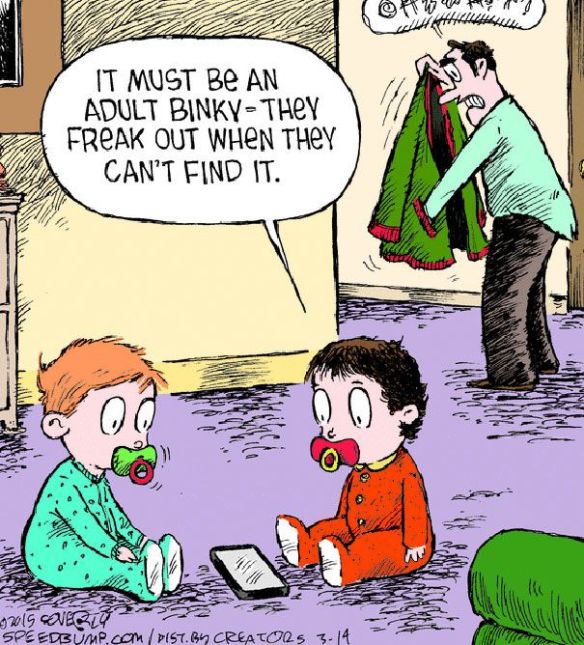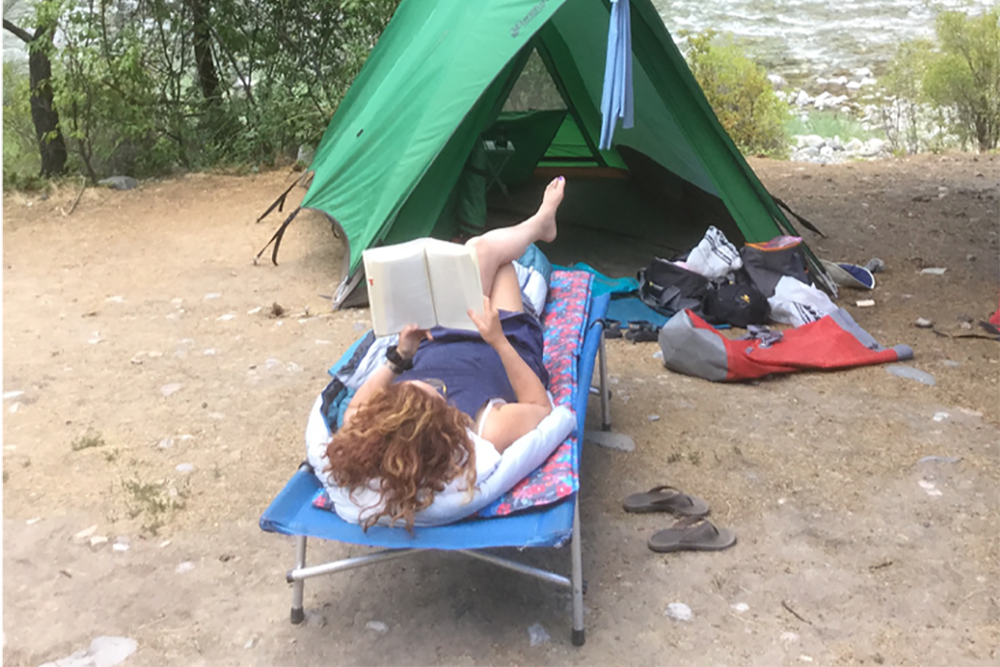Last week, I was forced to temporarily quit my tech addiction.
I locked my phone and laptop in the trunk of a rental car and boarded a plane headed for a family camping trip on the Salmon River in Idaho.
As we rose above the clouds and tilted towards the forested expanse, I thought about my phone and laptop, rendered mute many miles away from me.
My devices and I had not been apart in many years. How many? Ten? Twenty?
Never? Yes, never.
If I force myself to think about it, I’ve spent more time with my phone and laptop than with anything or anyone, ever. From the moment I acquired them years ago, we’ve been literally inseparable.
I admit to an addiction; I just can’t see another way. How does one function in a society that expects constant access? Where in order to be seen as a professional, you better respond within 24 hours? Where in order to be a good friend, you better be reachable?
And yet, for six days, a group of four families, 20 people in all, lived with zero technology between us (save for cameras).
Here’s what happened instead of technology. Every morning, we woke up and felt withdrawal as we could not reach for our phones. We lay in sleeping bags and talked until we got up to pour coffee that was boiling on the stove over a fire. Then we had breakfast and watched the mighty river before us, alive with a world of life above and below its surface.
And then we got into rafts and drift boats and floated down the Salmon River. For hours, we floated. We fished and paddled through rapids and when we got hot, we jumped in the clear, bracing waters. We watched flocks of birds glide through the sky. We sat in silence and watched the pools and eddies and talked about everything and nothing.
At night after dinner, we did not, like many of us usually do, drop off into rabbit holes of tech oblivion populated by emails and texts and Facebook and Netflix. Instead we sat around the fire getting to know one another, sharing stories, exploring thoughts and ideas and world events.
We drank wine and hot chocolate, played cards and watched the darkness set in. When a subject came up that presented a question, we did not google it with phones lying six inches away face down on the table. We just discussed the question till something else came up. And when we ran out of words, we went off to lie under the stars or go into our tents to read our books.
I know. This is not real life. But being cut off from technology made me realize just how much it robs us. It exposed how our devices dominate and commandeer our thoughts and behavior. It exposed how technology devours our mental spaciousness, our ability to hear our own thoughts, our ability to be fully present with others.
For me, six days away from the endless loops of communications had a sweeping effect on my nervous system. I could actually feel my brain chemistry settle into a different state of consciousness. I wasn’t thinking on 26 cylinders. My mind didn’t buzz with the infinite pending correspondences. I was able to read a book without my mind racing in the background, forcing me to re-read what I’d just read. Inside my brain, for the first time in I don’t know how long, there was peace. There was space.
Like, here is your brain…not on technology.
I have an app called Moment that tracks how many times a day you check your phone. My average is between 40-60. Get that? 40-60 times a day. Like most of us, I feel I have no choice. I need to stay on top of my game! I need to get right back to people!

Only after breaking from that mental slavery do I see the delusion of that thinking. We create this sense of urgency. This state of urgency is a fiction invented by us as individuals and as a society. And for what? To create a sense of purpose through the rush and the busyness and the whirl of digital communication? No one really needs us that badly, unless it’s an emergency, which it rarely is.
When our kids were little, we had a babysitter from Latvia. Frida is her name. She is ageless, either 60 or 80, and she is like a machine of efficiency, a blur of activity at all times—right next to my own blur.
“Frida,” I said to her one day, “Do you notice we’re always rushing?”
She looked at me and her blue eyes twinkled.
“Yeh, yeh,” she chuckled. “We are all rushing, rushing to the grave.”
I think about that a lot these days.
“Take email off your phone,” my husband suggested.
But I want more. I’ve been back in civilization now for two days, and I still can’t bring myself to turn my phone back on.
I know that once it’s on, I’ll be instantly sent into the relentless, foaming surf of modern life, the sirens calling us all away from all that goes on without consent or witness, the wind in the trees and the sun dappling the hills and the feeling of being truly connected to one another and ourselves.
One more day, I think. One more day it can all wait.
Tell me, Friends, how do you put boundaries around technology?





16 thoughts on “I Took A Tech Fast For 6 Days. It Changed Everything.”
I’ve read this to 3 teens now. Those whom usually turn away from whatever I say. Riveted. Hung on and contemplated your every word. Thank you for sharing and teaching as you go.
Peddie – thank you so much. If only my own kids listened!
Fabulous column, Jules! So true! ❤️
Thanks Frem! xo
This article really spoke to me. We are all addicted to our phones and afraid we will miss an important call/text/email message and seem unresponsive if we take more than an hour to respond. I’ve started to leave all electronics in the kitchen and go to bed to read a real book to help unwind. It is so difficult some evenings to think “I’ll just catch up on a few emails and articles”, then look up and two hours has gone by. I now tell my clients that I won’t respond to emails/calls/texts after 9:00 p.m. Should make it 8:00 p.m.–that’ll be my goal for the end of the year. Some people get upset when you aren’t online, but I try to set the guidelines early on and mostly get acceptance. Thanks for the great article Julie! Laura
those are great strategies, Laura!
Sooooo good! Sooooo true. And, damn, i’m reading this on my cell phone after having followed the link from Facebook as I lie in bed… i think I need the Salmon river! ❤️
Well said, Julie. I think more people should go tech-free, every now and then. It recharges the mental batteries. 👍
This was amazing because I haven’t taken this break from technology like you just have yet I want to and know that we all need to and you just reinforced everything that I am feeling. But why can’t we just take email off our phone? I’m really pondering that right now. Maybe I will just do that and everything just will have to wait. This gives us so much to think about. I think we should all do it, don’t you? Turn off the phones, take off the email and go back to what was.
Yes I do think we should Lisa! I will if you will!
You hit the nail on the head!!!!
People used to speak to one another which is much more pleasurable
There are wonderful ideas sent out there, but the bullying and negativity erases all the good our “send” reflects
You certainly have nailed it, my friend. I have always been a voracious reader and still am but now I interrupt myself with the damned phone. Lots to think about ❤️
❤️ in total agreement! And it is hard, but not impossible to take your email off your phone. Sometimes it causes me a little panic and anxiety, or I have to explain to people why they can’t just email me that oh-so important item when I’m not in my office or at my computer. But most of the time it is a blessing.
You are my inspiration! ❤️
Oh so good and so true! Of course, I’m reading this on my phone…